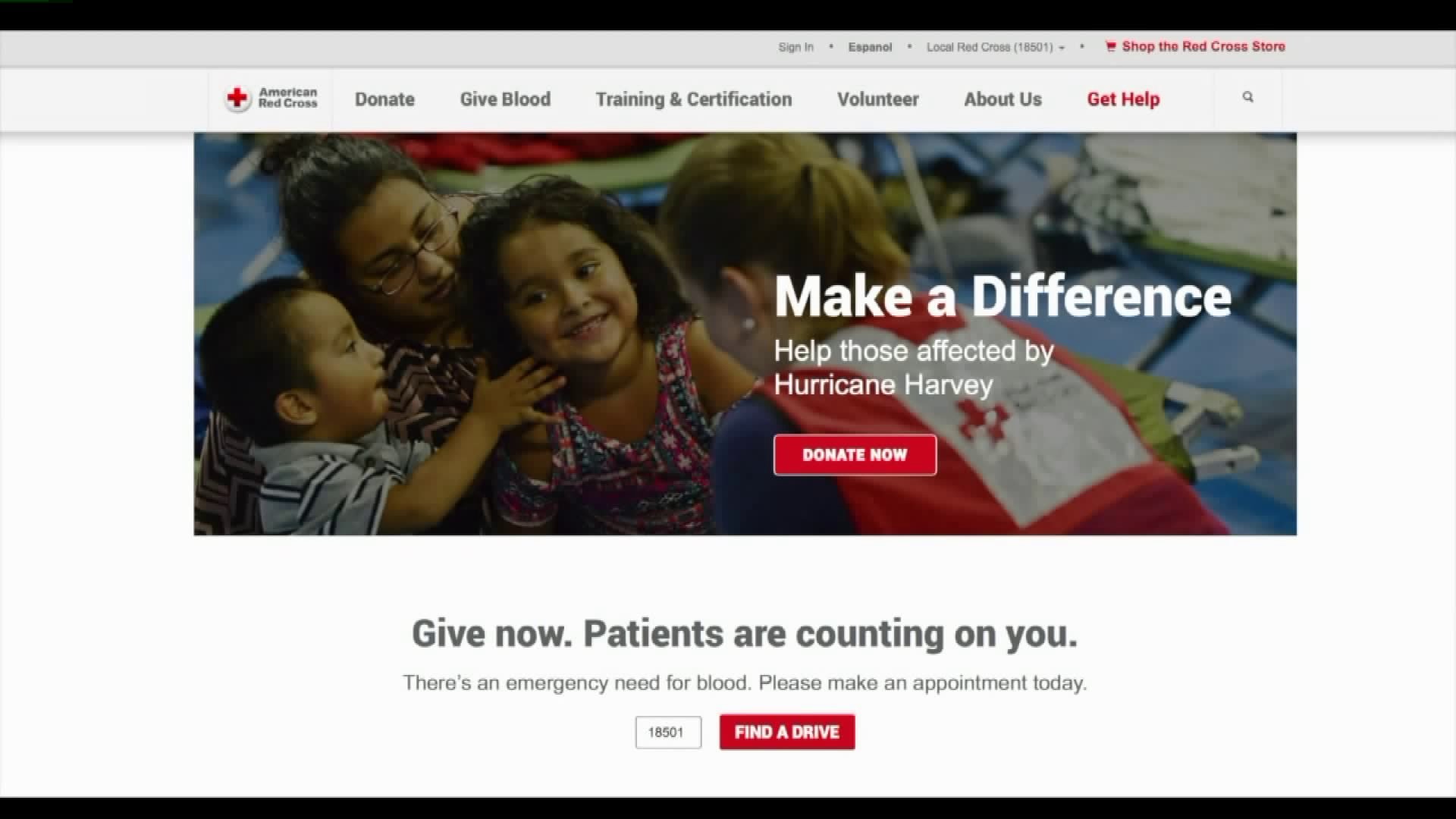LEWISBURG -- The images from Texas show catastrophic flooding and brave rescues. Thousands of volunteers across the country made their way to Texas this week, but what about the people at home? A lot of organizations are collecting money, but how do we know which ones are legit?
"If they're a partner of the United Way, that's also a mark of legitimacy and reputation so you might consider giving to them directly," Professor Eric Martin said.
Eric Martin is an Associate Professor of Management at Bucknell University in Lewisburg who studies and teaches about non-profit organizations. Martin recommends people look into the charities before donating. He suggests an online site such as "Charity Navigator."
"You can plug-in any 501-C3 and find out a little bit more about the organization," Martin said.
When it comes to helping those in the Houston area martin recommends donating to large and well-known organizations.
"This situation in Houston right now really requires a massive response. These are organizations that are able to put on unbelievable response efforts that most of these small organizations can't tackle," Martin said.
Pennsylvania Emergency Management Agency also put out some tips such as do not donate on social media or through email.
PEMA advises against donating over the phone, especially giving out your credit card number over the phone.
This couple from Lewisburg prefers to donate to national organizations.
"They're recognized and they have a history. The ones that come out of the blue, you just don't know where it's going to wind up," Steve Malriat said.
Cindy Malriat looks to the media for charity recommendations.
"The New York Times probably would be one of the ones I would trust the most if they gave a listing of here is such," Cindy said.
Professor Martin also recommends donating directly to organizations in Texas, such as the United Way of Houston.

